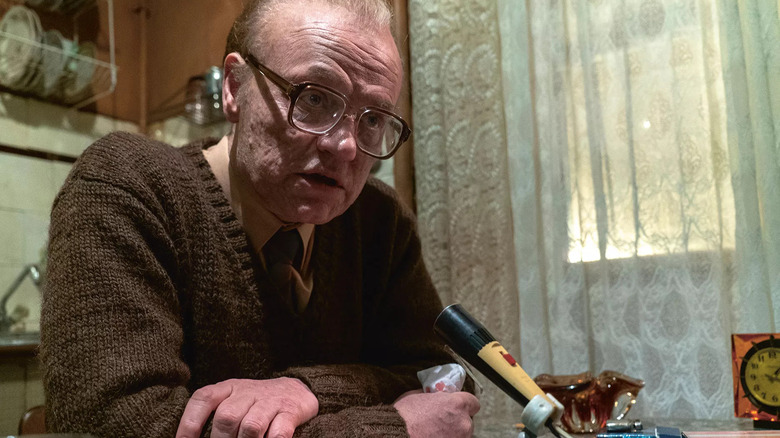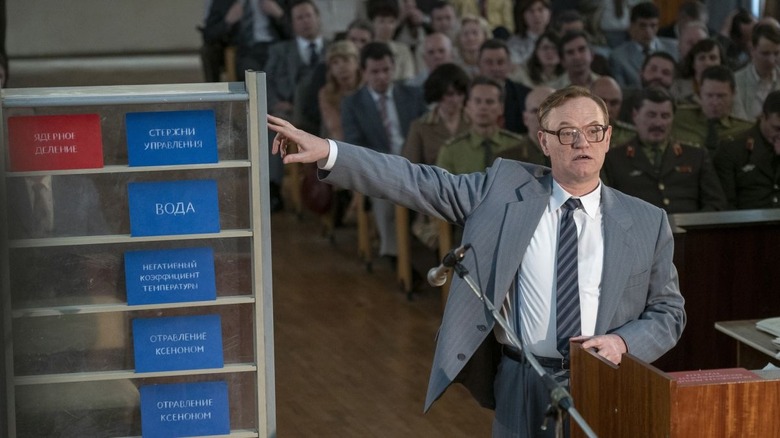Jared Harris Knew HBO's Chernobyl Wasn't About Telling A True Story
Before co-creating HBO's "The Last of Us," showrunner Craig Mazin cut his teeth on a real-life apocalyptic scenario in the vital, terrifying, and relevant miniseries "Chernobyl." Trailers promised a series "based on the untold true story" of the 1986 nuclear disaster at the Chernobyl Power Plant in Soviet Ukraine, and over the course of five episodes, "Chernobyl" received much praise for its historical accuracy. However, the series wasn't so beholden to the facts that it forgot to tell an engaging story onscreen.
Our review of "Chernobyl" called the series "intense and infuriating" in how it shows humanity's capacity for willful ignorance as disaster plays out right in front of it. In a 2019 interview with Deadline, "Chernobyl" star Jared Harris further observed that the series contains "a fastidious attention to detail and authenticity," bolstered by in-depth research. One commentator on CBS News at the time pointed out that the scene where men shovel radioactive debris off a rooftop and back into a nuclear reactor seemed to be modeled almost "shot for shot" on real documentary footage. Yet from the very beginning, "Chernobyl" was willing to diverge from the historical record for dramatic purposes, and as Harris told Deadline, it was not intended to be a documentary:
"You're working in a different medium from documentary. This is fictionalized. It's the magic of 'what if' as you start to watch it. We accept that, and understand we're being told a story. Over five hours we'll hear a story that actually took place over two years. Of course a lot is going to be left out, and the narrative will be telescoped."
Truthful 'even if that means diverging from fact'
The first episode of "Chernobyl" opens with Russian scientist Valery Legasov, played by Jared Harris, hanging himself on April 26, 1988, the two-year anniversary of the nuclear disaster. He does it at the exact second that the reactor exploded, and that gives the episode its title, "1:23:45." In reality, Legasov committed suicide a day later, on April 27.
Another example of the series taking creative liberties and "telescoping" events is the development of Emily Watson's composite character, nuclear physicist Ulana Khomyuk, who is, as HBO itself acknowledges, based on many scientists who investigated the accident, not just one person. According to Harris, Craig Mazin and Johan Renck, who respectively wrote and directed all five episodes of "Chernobyl," were more focused on capturing the spirit of the truth rather than rigidly adhering to every last fact:
"They'll look at something and say, 'That's not acceptable; it doesn't ring true, it wouldn't have been there, it wouldn't have happened like that.' There were consultants on set, who they trusted and relied on. That feeling of authenticity was there, and with regards to the storytelling, you want to get as close to the truth of the story you're trying to tell as possible, even if that means diverging from fact."
"Chernobyl" is streaming on HBO Max.

